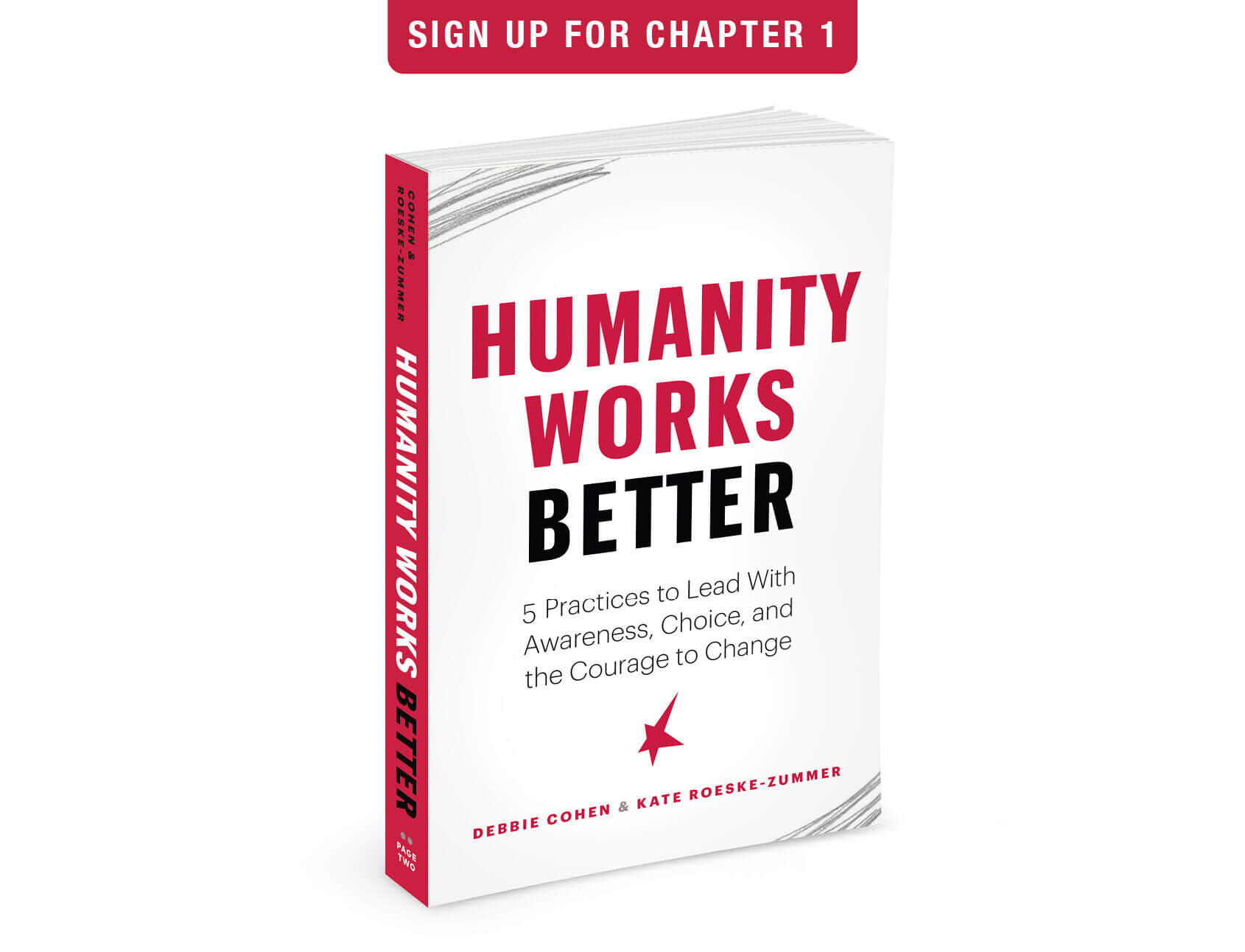
The more human you are as a leader, the more your people will respond.
A record 4.5 million workers quit their jobs in November, showing that the Great Resignation is not slowing down. The current omicron surge has just added to the universal instability everyone everywhere is feeling. The continued tsunami of turnover has leaders in a constant state of uncertainty about their workforce. Are your people about to quit? And what can you do about it?
In our recent Fast Company article, How to Get your Employees to Stay When They’ve Got One Foot Out the Door, we discuss how the more human you are as a leader, the more your workers will respond.
Stress is a huge factor supercharging the Great Resignation. A recent Talkspace study tells us that of those considering resignation:
-
80% describe themselves as burned out
-
43% have a hard time sleeping due to stress
-
39% feel short-tempered
So, as a leader, what can you do? Here are three tips to get you started:
Your people are stressed in a way they’ve probably never been before. During times of uncertainty and change, the most important aspect of working with people is to build an environment that feels safe and builds trust. Open the door to these conversations with genuine curiosity. Ask what do they need right now, and be open to all feedback. Genuinely listen to what they have to say. By getting curious, you build the trust they need right now to share.
This is a relationship, and perhaps the pendulum is swinging in a different direction. Most healthy relationships are a two-way street. Take an inventory of your relationships with your people: How are you doing? If you feel the need for change, what shifts make the most sense? If you don’t know, try the above step, and try getting curious about their lives and thoughts.
With the ping-pong conversation of remote work to back-to-the-office to remote work happening constantly, remain flexible in what your people need. And, it might be different for each person. According to the research from Talkspace, here are some examples of what people want:
-
74% would find paid time off for mental health helpful
-
69% would appreciate an open-door policy with managers
-
64% would appreciate subsidized counseling and therapy
Keep your flexibility muscles strong during this time of uncertainty.
People are leaving. Things are stressful. Uncertainty is all around us. So, focus on what is within your control and use these three steps to develop a rich relationship with your people. And, maybe, just maybe, your people will stay on a little longer.
Read our full article in Fast Company here.

